Four months of working in fast food instead of journalism is a story of a young university graduate Albina could become typical for many beginners in the media. “No one will teach you” is the phrase she has heard dozens of times sending her resume to newsrooms. But perseverance was the victor: today, the girl works successfully in one of the media.
The JSCs of the National Union of Journalists of Ukraine (NUJU), created to support Ukrainian media workers during the war, among other important areas of work, help young journalists find their place in the profession.
The key services for beginners:
- legal support and consultations
- internship in newsrooms
- training programs and training sessions with experienced journalists
- assistance in employment
- international internship opportunities
- access to the professional community
“Young media professionals should start cooperating with newsrooms while they are still students. Professional and ethical standards should be the key regulators of their work,” emphasizes the President of the NUJU, Sergiy Tomilenko.
The paradox of the situation is that while young specialists are unsuccessfully looking for work, many Ukrainian media outlets are experiencing an acute shortage of personnel. The situation is especially critical in front-line regions, where newsrooms are losing employees due to mobilization and people leaving for safer places. The JSCs are becoming a bridge that helps media outlets find new staff, and young journalists receive the necessary support at the start of their careers.
Media executives: challenges
Editors of regional media have found themselves in a difficult situation: on the one hand, there is an acute shortage of personnel, and on the other, there are limited opportunities to attract and retain young journalists.
“Not everyone can withstand constant shelling. Even if we hire and train young specialists, some, having gained experience, leave for safer places. This is one of the main reasons for the loss of personnel,” explains Eric Brynza, head of the Zaporizhzhia radio station, Velikyi Luh, and the website Inform.zp.ua.
In the Chernihiv Region, the situation is even more difficult – due to the mobilization of workers, three border communities were left without a local newspaper altogether. “For our region, print media are especially important – not everyone has access to the Internet, and local information is often unique,” notes Serhii Kolbasa, the editor-in-chief of the Zhyttia Polissia newspaper.
Svitlana Liashko, the head of the Sarnenski Novyny newspaper from the Rivne Region, pointed out another problem: “Young specialists are looking for higher salaries. Many go into other areas, for example, logistics.”
Formal requirements also create additional restrictions. “We cannot even take a talented student without a bachelor’s degree, although not all good journalists have a specialized education,” explains Aliyona Natalukha, the head of Suspilne Zaporizhzhia.
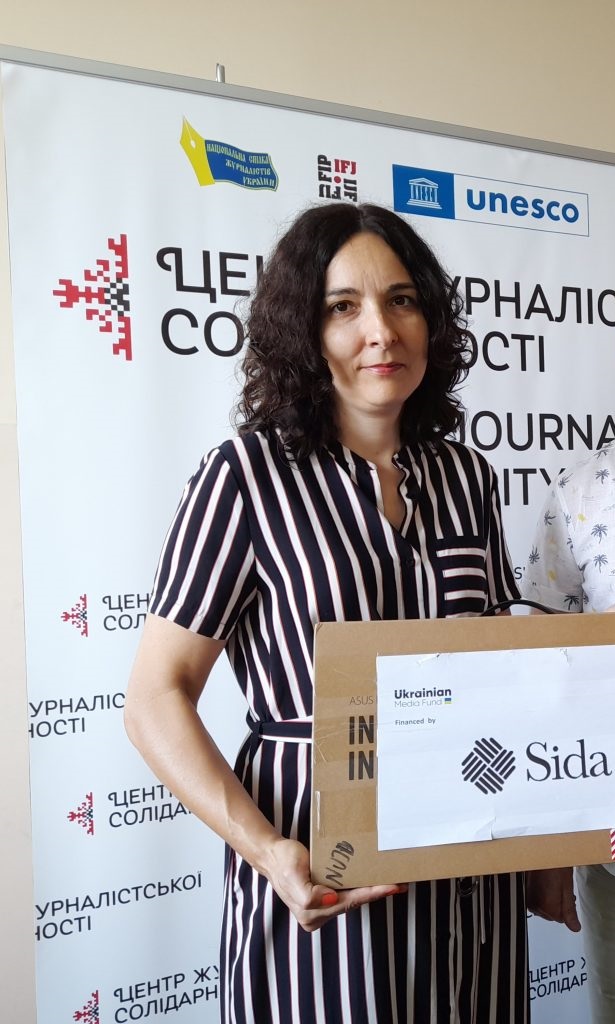
Oksana Danyliuk from the Chernivtsi television and radio company, ACC, emphasizes that it is especially difficult to find and quickly train technical specialists – photo and video correspondents.
JSCs: Supporting Young Media Workers During the War
In war conditions, supporting young journalists has become one of the important areas of work of the NUJU‘s JSCs. The Centers have developed a comprehensive assistance program that includes:
- Educational support: regular training and master classes from experienced journalists
- Practical training: internships in newsrooms and the opportunity to gain first professional experience
- Career development: information about vacancies and establishing contacts with potential employers
- Mentoring: meetings with successful young journalists who share their experience of working during the war
- Networking: creating a professional community for exchanging experience and mutual support
“It is the current generation of young journalists who are called upon to shape freedom of speech in our country. It is extremely important that student journalists do not just receive an education but go to work in the profession,” emphasizes Ihor Maslov, a representative of the National Council for Television and Radio Broadcasting in the Ivano-Frankivsk Region.
A prime example of such support was the TV discussion called Our Freedom Depends on Freedom of Speech, organized by the Ivano-Frankivsk JSC, together with the RAI TV channel. The event brought together experienced media professionals and beginners, creating a platform for discussing the current challenges of wartime and opportunities for professional development.
The JSCs strive not only to help young professionals start their careers but also to support the personnel stability of Ukrainian media in general, which is especially important in times of war.
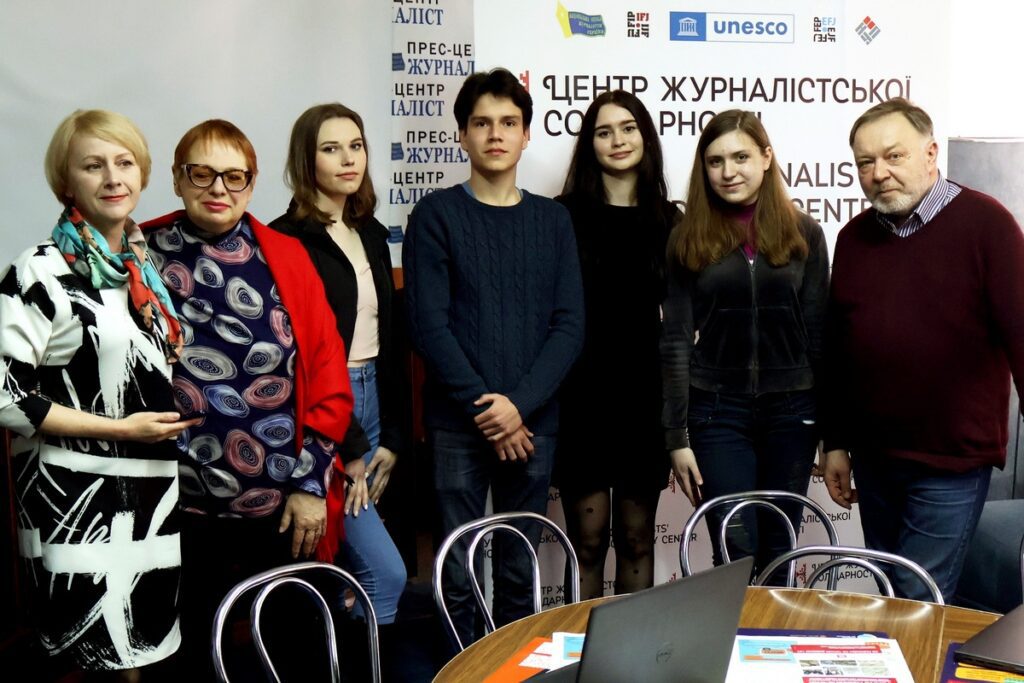
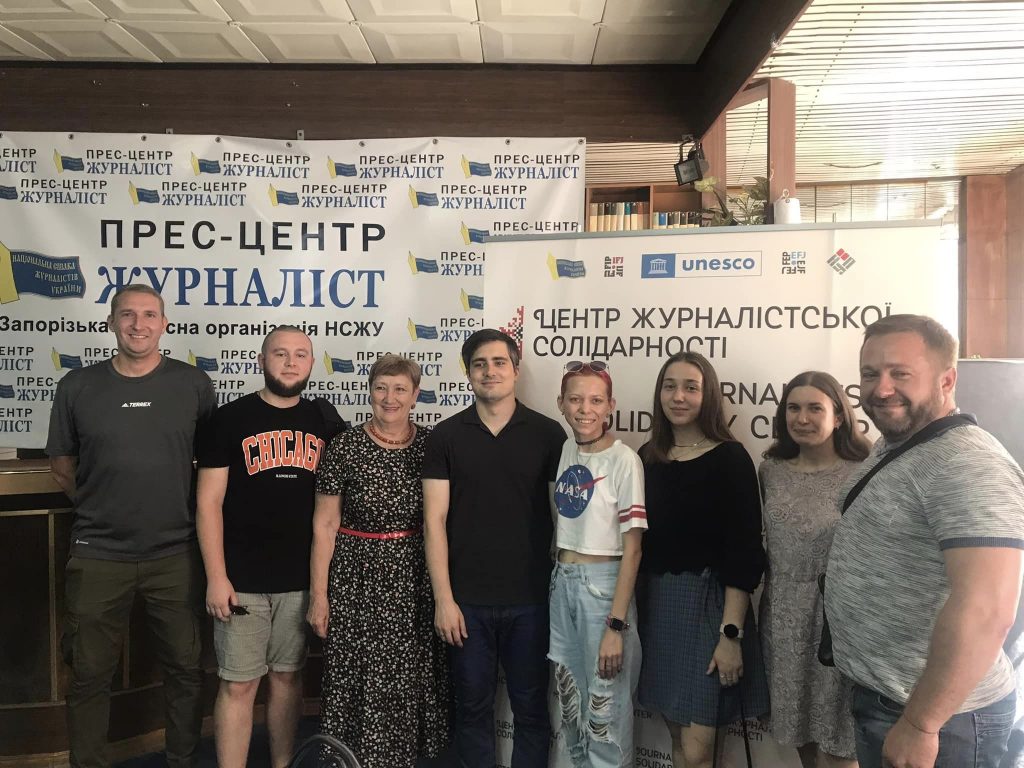
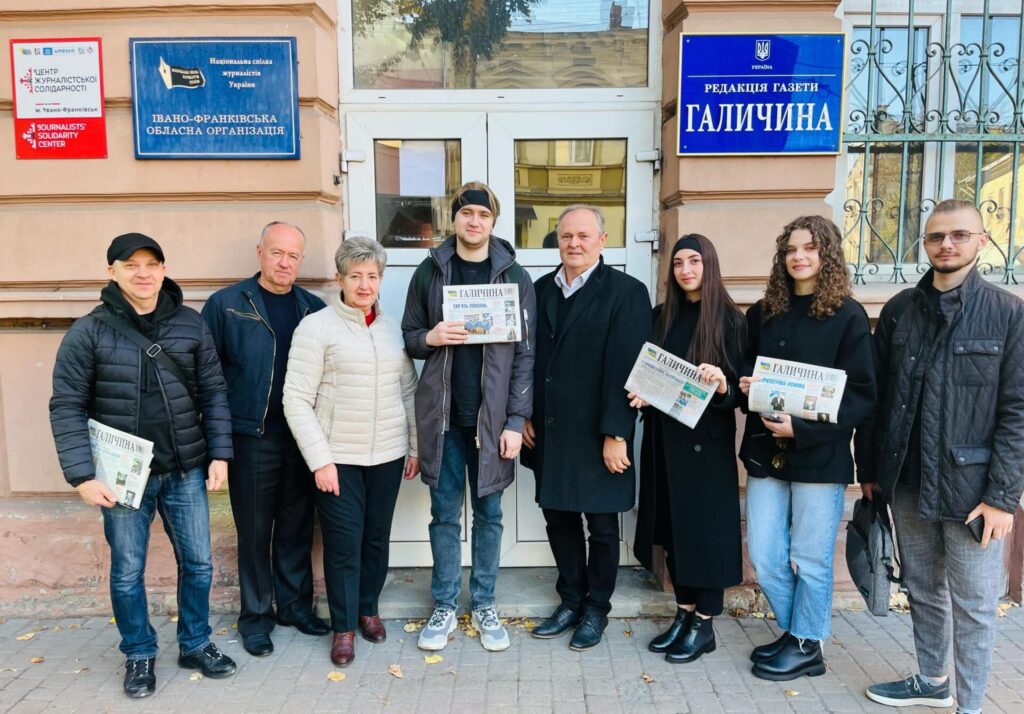
Young media professionals are also helped by successful peers
The new generation of Zaporizhzhia journalists is not waiting for better times but is creating their own media projects despite the war. This was discussed at the media forum Young Zaporizhzhia Journalism and the Challenges of Wartime, which was held at the local JSC.
“We are in demand and needed. Even in conditions of “You can work actively and creatively,” says Kateryna Rozhdestvenska, the founder of the online media outlet SODA. Her project became a platform for experiments with formats and the implementation of decision journalism. Together with Maksym Savchenko, who created the resource Reconstruction of Zaporizhzhia, they moderated a discussion about the challenges of wartime.
Despite the lack of state support, new media outlets are actively developing in the city – SODA, Restore Zaporizhzhia, 061, and Pershyi Zaporizkyi. Young editors discussed the peculiarities of covering the war, ensuring the quality of content with limited resources, and the safety of journalists.
“On our TV channel, almost the entire creative team is young. They are motivated and talented, but sometimes they take too many risks for the sake of good material,” says Yurii Yurchenko, the head of the MTM TV channel, which actively supports the JSC. “That’s why we created safe working conditions – we have protective equipment for working in front-line areas, reliable shelter, generators and all the necessary equipment.”
The experience of Zaporizhzhia media workers shows that not only do young journalists work successfully in extreme conditions, but they are also ready to share their experiences with beginners, creating a new generation of professionals.
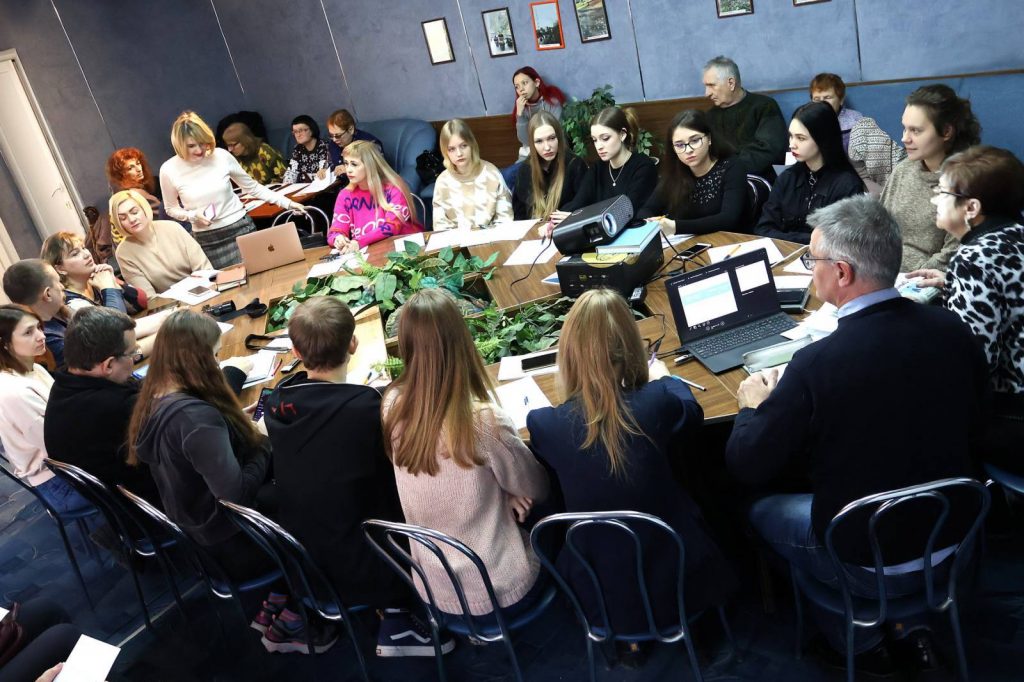
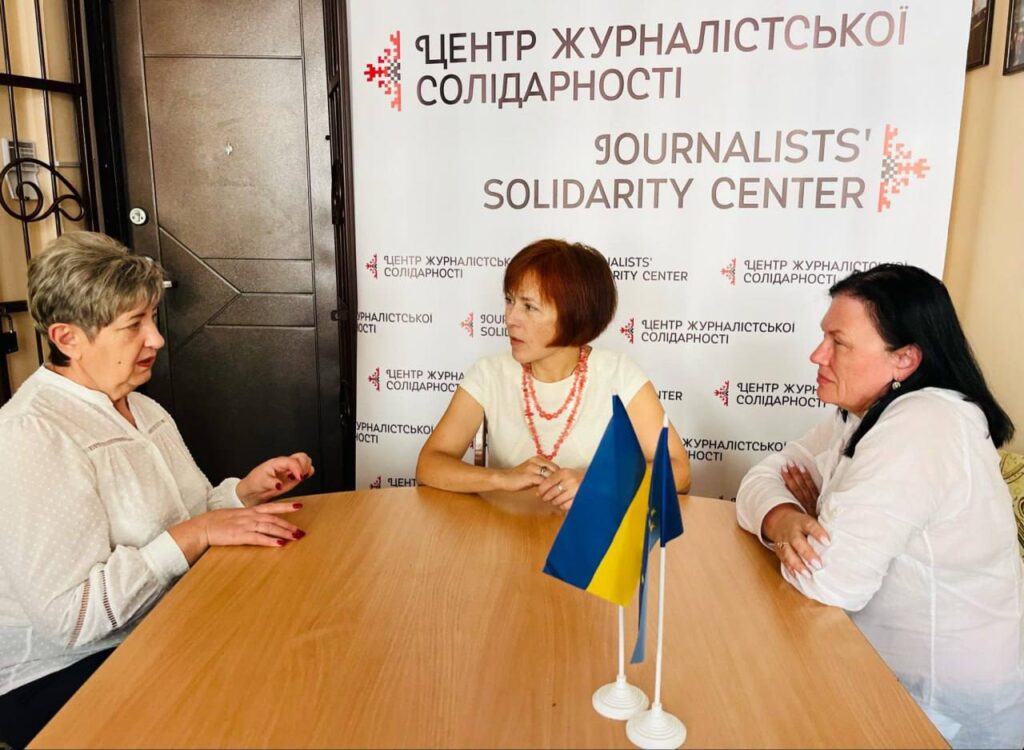
Students are an important part of the audience
JSCs have become powerful educational platforms for future media workers. “We have a reliable support – young people who have consciously chosen journalism. Their task is to bring truthful information to people,” emphasizes Lina Kushch, the First Secretary of the NUJU and the coordinator of the network of JSCs.
A project of the JournLab journalism school in Lviv was particularly successful. “Young journalists need not only university education but also practical schools where they can create their own professional community,” explains Nataliya Voitovych, the coordinator of the Unified Western Ukrainian JSC and the founder of the school. Over two weeks, 20 practicing journalists underwent intensive training in security, news journalism, and fact-checking. The project was implemented in partnership with Fondation Hirondelle (Switzerland) and with the support of Swiss Solidarity.
“The most memorable was Sofia Troshchuk‘s lecture on countering propaganda. Now, when there are so many fakes, it is extremely relevant,” says Olha Romaniv, a student at Lviv University.
In Dnipro, Polylogs About The Profession has become traditional for first-year students of the University of Customs and Finance. “You have every opportunity to become a successful journalist. The main thing is to work hard and love your job,” the head of the regional organization of the NUJU and the head of Visti Prydniproviya, Oleksii Kovalchuk, addresses the students.
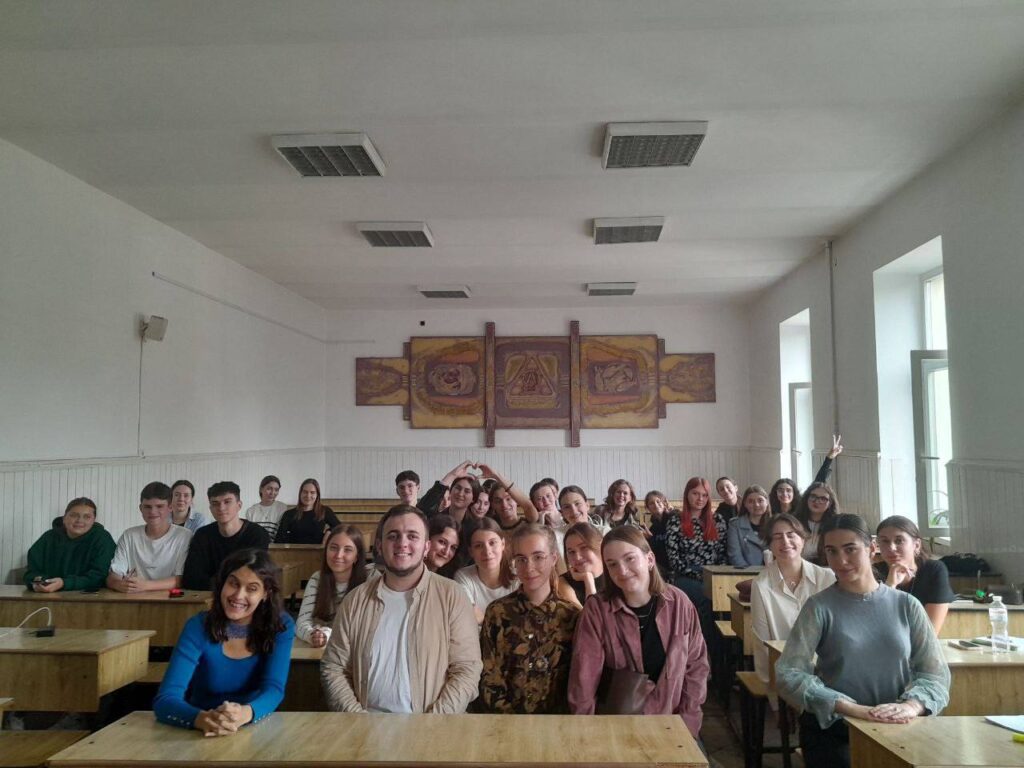
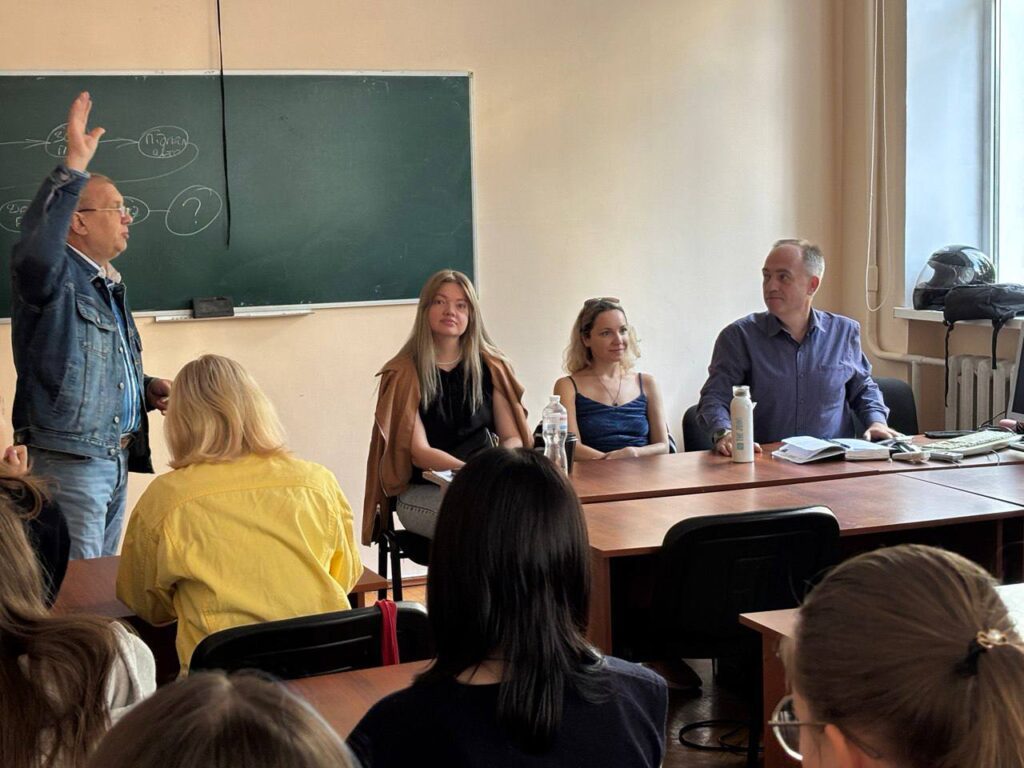
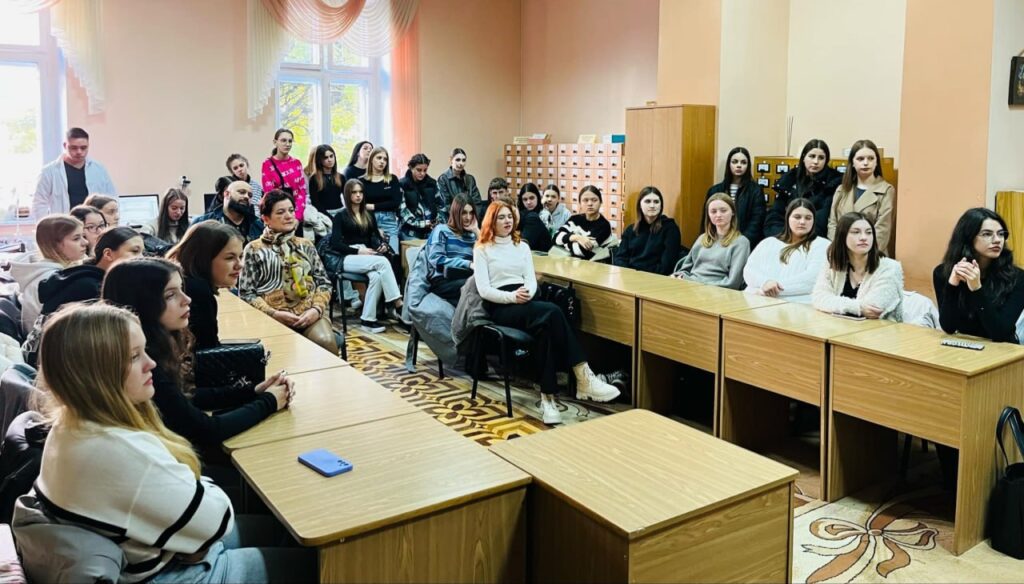
The School of Journalism has been operating in Ivano-Frankivsk for the second year under the leadership of Halyna Prystai, an associate professor at the Precarpathian National University. “This is a unique chance to gain knowledge from experienced practitioners,” notes Liliana Khomyshyn, a graduate of the school, currently a correspondent for the BBC Ukraine, and the head of the Youth Council of the Regional Union of Journalists.
Particular attention is paid to practical skills. In Ivano-Frankivsk, the JSC coordinator, Viktoriya Plakhta, introduces students to the work of local media. Specialized training sessions are also held here. They are dedicated to digital security, the classes provided by Myroslava Shevchuk for students of King Danylo University.
The Centers also support teachers. A good example is the collaboration with Vera Ilyina, a journalist-immigrant from the Donetsk Region, who has 30 years of experience in the profession: “I love working with young people, passing on knowledge to them.”
The relevance of such training is confirmed by the students’ feedback. “The training in media analytics and countering propaganda has become an important step towards professionalism,” says Iryna Obukhova, a student at Zaporizhzhia Polytechnic University.
It is important that students are actively interested in the work of regional media. This gives hope that local publications, which are currently experiencing a shortage of personnel, will be able to attract young specialists ready to develop local journalism.
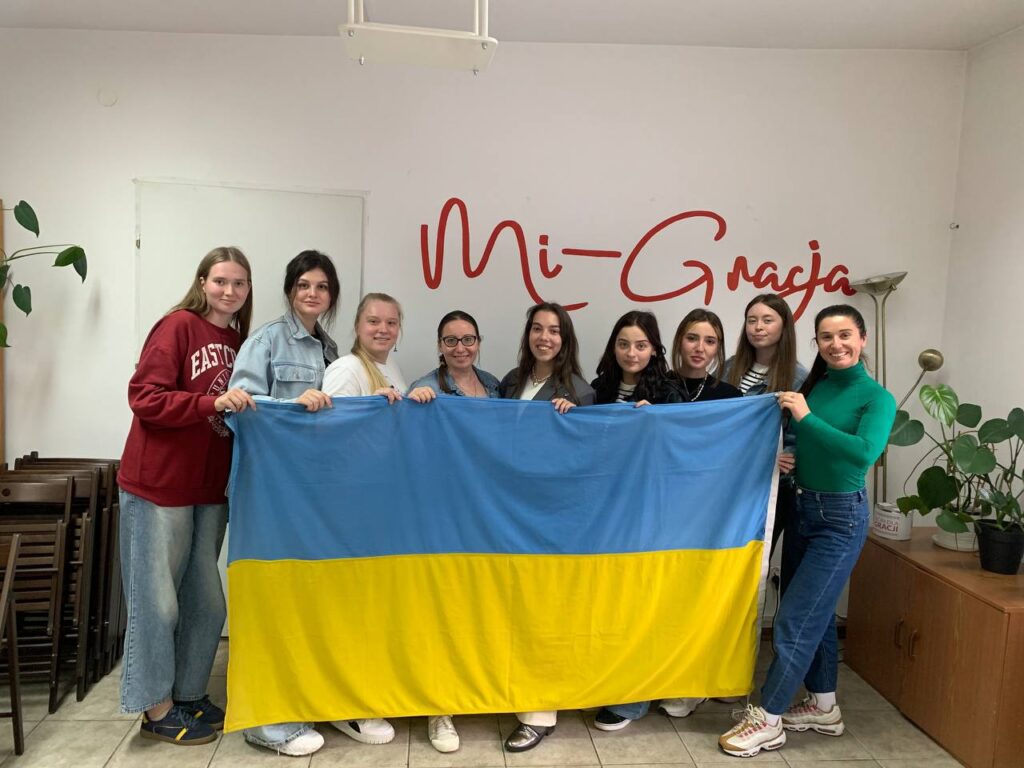
Youth needs legal support
The JSCs pay particular attention to the legal education of young media professionals. Experience shows that beginners can get into difficult legal situations due to a lack of knowledge.
A telling case occurred in Lviv when a young man approached the Unified Western Ukrainian JSC with a question about the legitimacy of a journalist’s certificate obtained at private courses. The Center‘s coordinator, Nataliya Voitovych, forwarded the request to the hotline’s lawyers. IBC Legal Services specialist Danil Serbin provided a clear explanation: a journalist’s certificate is valid only if it is issued by a media entity, a professional or creative union of journalists, and contains all the necessary details.
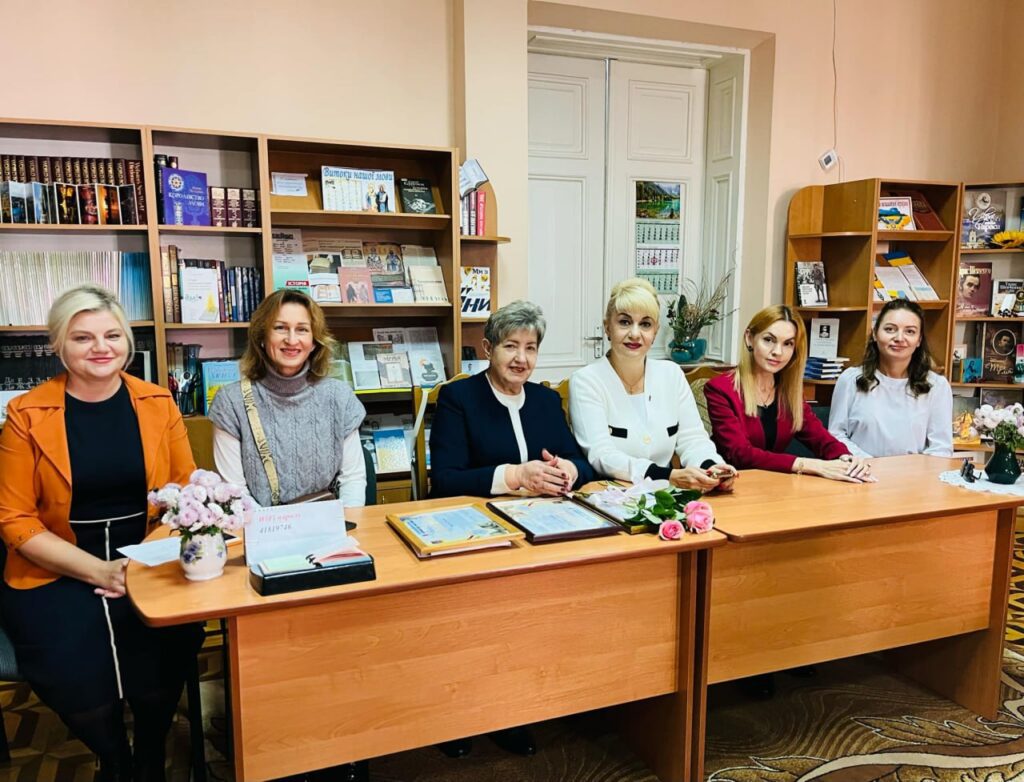
In conditions of martial law, legal issues acquire special importance. Therefore, the Centers regularly organize meetings of young journalists with experienced media professionals and lawyers. Recently, such a meeting was held at the Ivano-Frankivsk JSC for master’s students of the Precarpathian National University.
The editor-in-chief of the Halychyna newspaper, Vasyl Moroz, spoke about the practical aspects of registering a media outlet in accordance with the new law. The cooperation of the Center, Viktoriya Plakhta, informed about the opportunity to receive free legal advice on the NUJU hotline, which operates with the support of UNESCO and the International and European Federations of Journalists.
“In modern conditions, journalists, especially beginners, must have basic legal knowledge. This is a matter not only of professional competence but also of safety,” the JSCs emphasize.
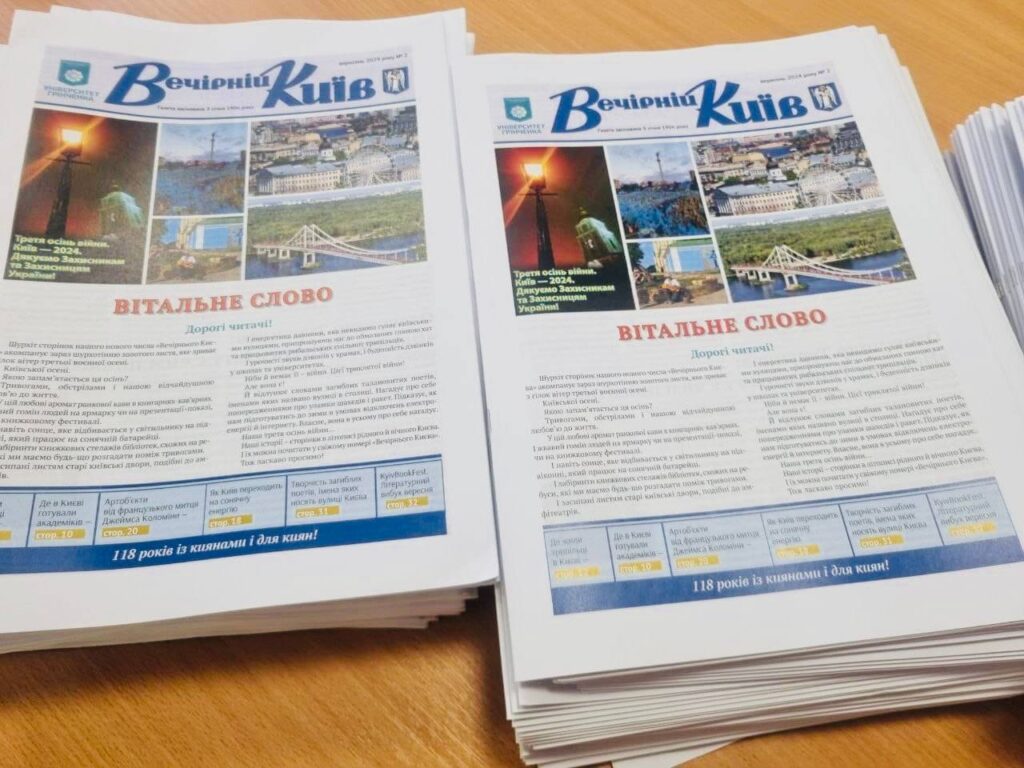
A new generation of journalists: solidarity during wartime
“Professional and ethical standards should be the key regulator of the work of young journalists,” emphasizes Sergiy Tomilenko, the President of the NUJU, evaluating the results of the work of the JSCs with youth.
This work gives concrete results. Over the past two years, more than 30 young journalists have joined the NUJU in Zaporizhzhia alone. They do not just receive membership but become active participants in the professional community and organize their own events and projects.
The Ivano-Frankivsk branch of the NUJU is also being replenished with young personnel. Diana Lavryk, a freelancer for the Vilnyi Holos newspaper and the head of the information department of the S. Bandera Tryzub, recently received a membership card.
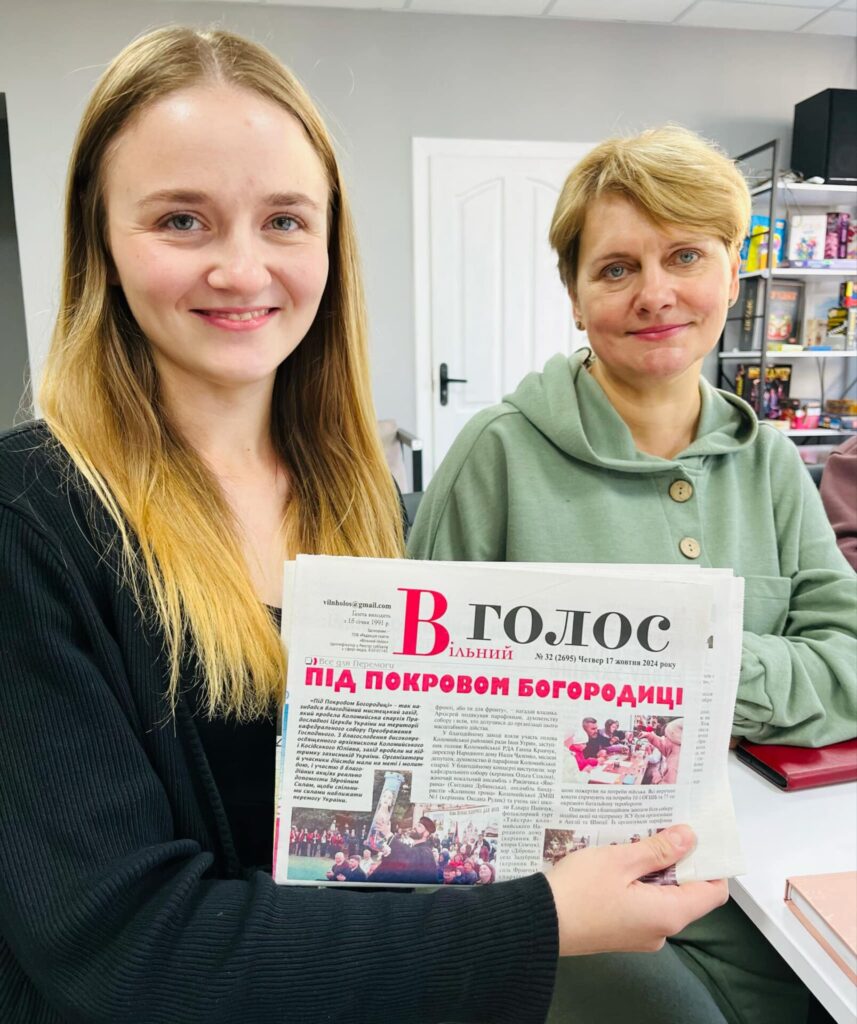
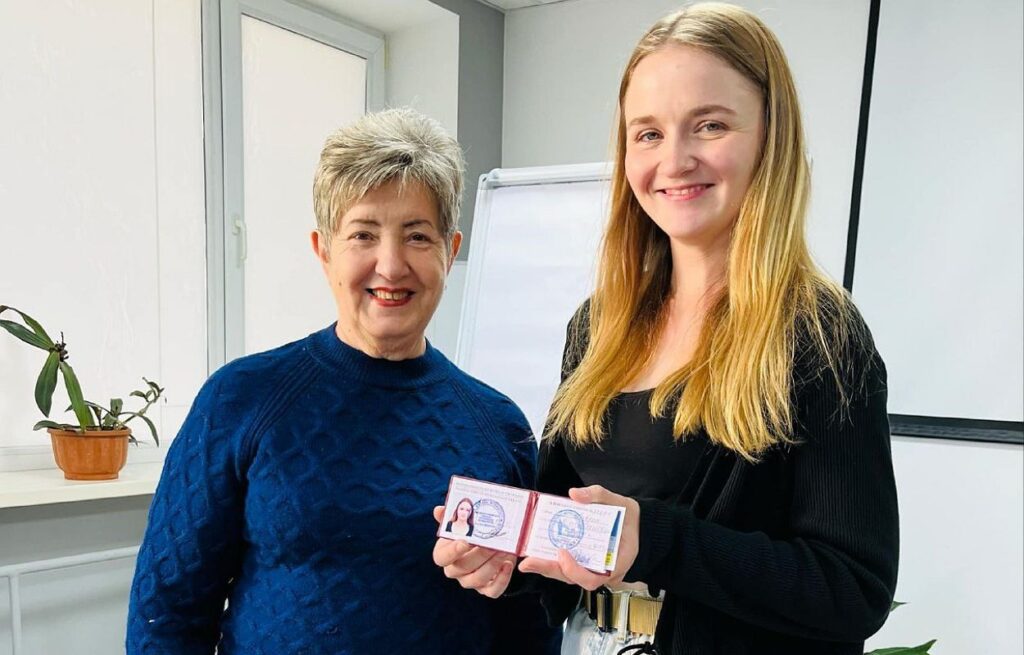
“Cohesion, solidarity, and support are what the journalistic community needs most today, in times of war,” emphasizes Viktoriya Plakhta, the coordinator of the Ivano-Frankivsk JSC.
Of particular importance is the assessment of the work of the Centers by the journalist-front-line soldier Yurii Hudymenko, the head of the Mriya non-governmental organization, who, after being injured, is engaged in protecting the rights of the military: “Never before have journalists needed the support of colleagues so much, and never has this support been provided to such an extent. The Centers demonstrate not just mutual assistance but also effective work for a common result. Without this, it would be much more difficult for media professionals to communicate with society, which needs reliable information more than ever.”
Such consolidation of the professional community is especially important in times of war, when journalists must not only adhere to professional standards but also resist disinformation and propaganda.
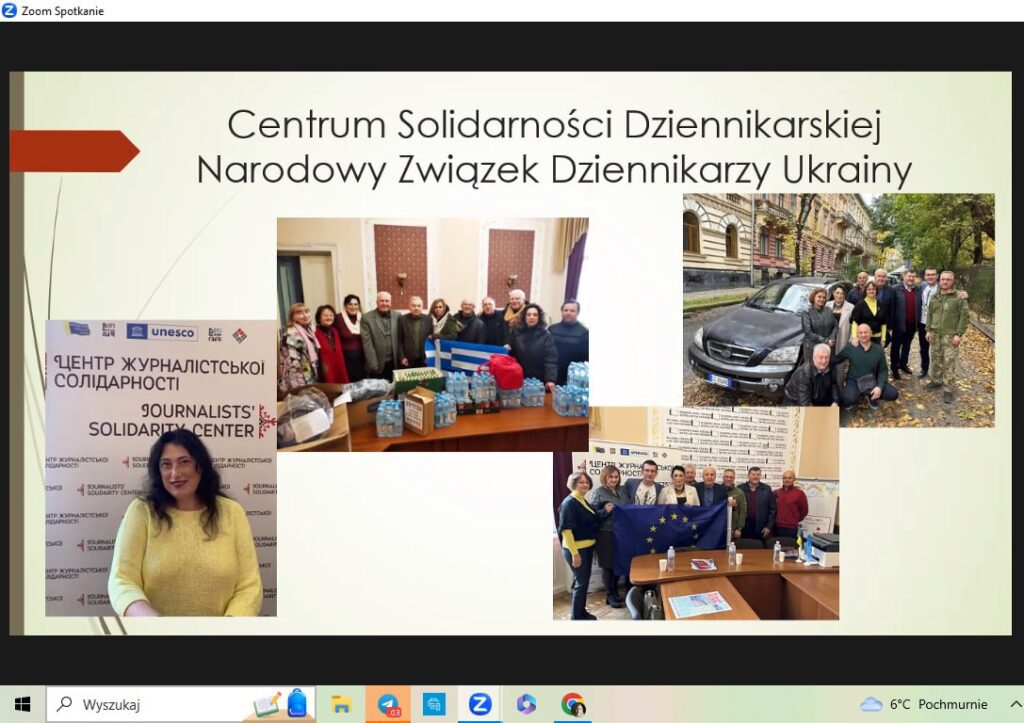
***
Where to find Journalists’ Solidarity Centers?
The Centers are always open on weekdays. But it is better to call the coordinators in advance to agree on a convenient time for you. The Centers are located at the following addresses:
- in Kyiv – 27A Khreshchatyk Street, tel.: 050 680 52 04 (Illia Suzdaliev);
- in Lviv – 5 Solomiyi Krushelnytskoyi Street, 2nd floor; tel.: 097 907 97 02 (Nataliya Voitovych); point of presence in Chernivtsi – 96 Nezalezhnosti Avenue, tel.: 068 286 37 06 (Volodymyr Bober);
- in Ivano-Frankivsk – 25 Sichovykh Striltsiv Street; tel.: 066 677 07 26 (Viktoriya Plakhta);
- in Zaporizhzhia – 152 Sobornyi Lane, tel.: 096 277 53 52 (Nataliya Kuzmenko and Valentyna Manzhura);
- in Dnipro – 8 Starokozatska Street; tel.: 050 919 84 79 (Nataliya Nazarova);
- in Kharkiv – tel.: 095 421 5477 (Hanna Chernenko).
ABOUT UNESCO
UNESCO is the United Nations Educational, Scientific, and Cultural Organization. It contributes to peace and security by promoting international cooperation in education, sciences, culture, communication, and information. UNESCO promotes knowledge sharing and the free flow of ideas to accelerate mutual understanding. It is the coordinator of the UN Action Plan on the Safety of Journalists and the Issue of Impunity, which aims to create a free and safe environment for journalists and media workers, thus strengthening peace, democracy, and sustainable development worldwide. UNESCO is working closely with its partner organizations in Ukraine to provide support to journalists on the ground.
The designations employed and the presentation of material throughout this digest do not imply the expression of any opinion whatsoever on the part of UNESCO concerning the legal status of any country, territory, city, or area or its authorities or concerning the delimitation of its frontiers or boundaries.
The authors are responsible for the choice and the presentation of the facts contained in this digest and for the opinions expressed therein, which are not necessarily those of UNESCO and do not commit to the organization.
NUJU Information Service

 THE NATIONAL UNION OF
JOURNALISTS OF UKRAINE
THE NATIONAL UNION OF
JOURNALISTS OF UKRAINE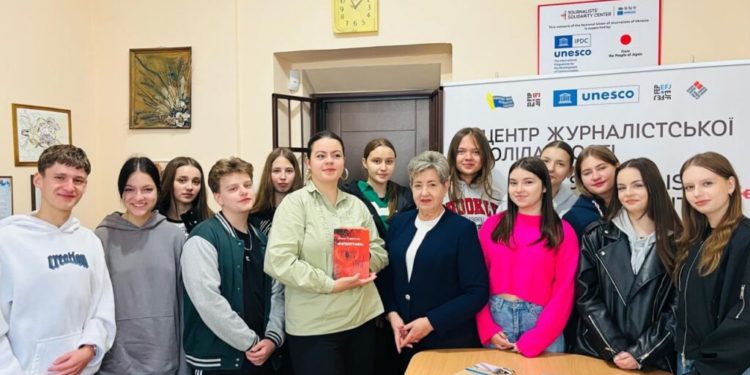
















Discussion about this post